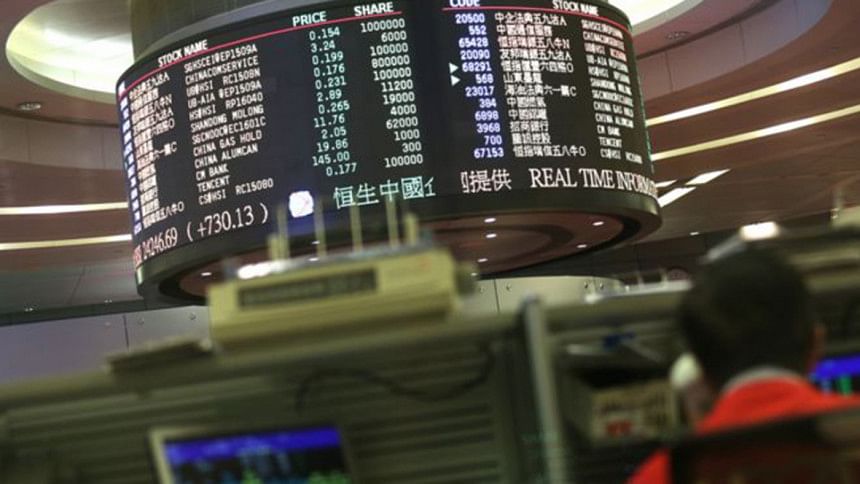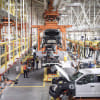Asian markets higher after global shares turmoil

Asian stocks opened higher after turmoil on financial markets saw European and US indexes tumble following another oil price fall.
Thursday's gains though did not recover the losses financial markets have seen over past days.
Investors remain worried over slumping oil prices and slowing growth in China.
On Wednesday, stocks had dived to their lowest levels since May 2009, with UK, French and Japanese shares falling more than 20% below their 2015 highs.
Wall Street was not immune either. The Dow Jones closed 1.6% lower after a volatile trading day had seen stocks as much as 3% down.
"Overnight markets in the Europe and US had a terrible day, where sentiments around a 'drunk' Asia spilled over," market strategist Bernard Aw of IG explained in a note.
'DEAD CAT BOUNCE'
Mainland China's main market in Shanghai was slightly lower by 0.3%, confirming international concerns over the world's second largest economy.
Hong Kong, though, managed to come back slightly from the previous day's record loss. The Hang Seng index recovered 1.3% after losing almost 4% on Wednesday.
"Traders say there is not much conviction behind the latest rally," the BBC's Juliana Liu in Hong Kong said.
"In fact, the gains are rather modest and vulnerable to any hint of bad news. They think this could even be a so-called dead cat bounce, a term coined in the 1980s to describe a brief recovery in an otherwise declining market."
Earlier in the day, Australia was the first to buck the share market rout, with the ASX/200 gaining 1,1%.
The rise came despite Australia being particularly dependent on China's economic performance as most of the commodities driving the economy down under are exported to China.
Japan and South Korea were also higher with the Nikkei up by 1.4% while the Kospi rose by 0.5%.
COMMODITY SLUMP
"Markets are just very uncertain about the slowdown in the Chinese economy," Stephen Koukoulas, chief strategist TD Securities, told the BBC.
"We saw the official numbers, but frankly not many people put a lot of weight on the reliability of them and instead look at commodity prices as a barometer for how the Chinese economy is going."
Oil prices have fallen below $28 a barrel, while coal, iron ore and other metals are all also in a drawn-out slump.
Many analysts have slashed their 2016 oil price forecasts, with Morgan Stanley analysts saying that "oil in the $20s is possible", if China devalues its currency further.
Economists at the Royal Bank of Scotland say that oil could fall to $16, while Standard Chartered predicts that prices could hit just $10 a barrel.
"So, investors are particularly nervous about the loss of momentum in China," Mr Koukoulas said. "The question is: Is it just an adjustment to some of the previous excesses or is this the start of something a little more nasty that will drag the economy to a much weaker growth path?"
Analysis: Andrew Walker, economics correspondent:
Some observers think that many markets were riding for a fall. Asset prices were pumped up by ultra-low interest rates in the developed world and also by the central banks that have engaged in quantitative easing, buying financial assets with newly created money.
That happened with shares, with bonds and with commodities. For commodities the boom is well and truly over, partly due to the slowdown in China and in the case of oil mainly due to plentiful supplies.
Clearly there are some troublesome developments and the IMF has a warning: "If these key challenges are not successfully managed, global growth could be derailed."
That at bottom is what the markets are worried about.

 For all latest news, follow The Daily Star's Google News channel.
For all latest news, follow The Daily Star's Google News channel. 








Comments